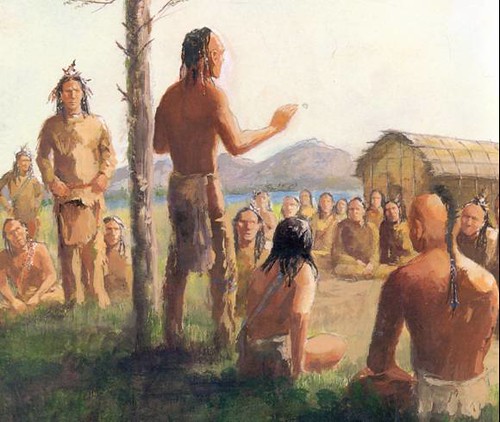The World After Easter
The World After Easter
by Brian Zahnd
He Who Sits Upon The Throne says, “Look here! I am making all things new!”
This is the only time in Revelation where we hear the voice of Him Who Sits Upon The Throne.
There are only three other times in the New Testament when we hear the voice of God the Father:
At Jesus’ baptism: “This is my beloved Son, in whom I am well pleased.”
At the Transfiguration: “This is my beloved Son, in whom I am well pleased — listen to him!”
Before the Paschal Mystery: “I have glorified it, and I will glorify it again.”
These occurrences of the Voice of God emphasize that Jesus is the Word of God — the incarnation of the Logos/Logic/Love of God sent into the world to redeem humanity from the dominion of Sin and Death.
When He Who Sits Upon The Throne says, Look here! I am making all things new! — he is doing it through his eternal Word, his only begotten Son, Jesus Christ.
This is what was promised in Abraham.
Foretold by the Prophets.
Born at Bethlehem.
Inaugurated on Easter.
The making of all things new!
God’s solution for a Creation marred by Sin and Death is not to abandon it, evacuate it, condemn it, or destroy it, but to remake it — to make it new again! This is what was inaugurated on Easter! Read more








